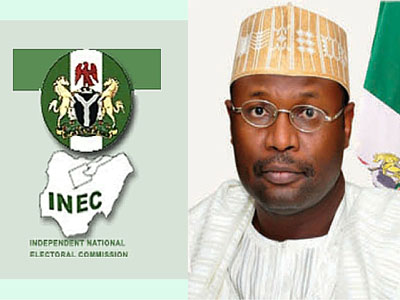It is a painful irony that the Independent National Electoral Commission (INEC) has paradoxically become one of the biggest obstacles to the successful conduct of free and fair elections in Nigeria.
Under the tenure of Professor Mahmud Yakubu, INEC has not been able to organise a conclusive election. Polls in Kogi and Bayelsa states both required two attempts to finish, and were characterised by violence, allegations of ballot-stuffing and other irregularities.
Part of the problem stems from INEC’s inexplicable inability to properly enforce laid-down regulations, especially those relating to the prosecution of individuals deemed to be guilty of election-related violence and other malpractices. Despite widespread misconduct during successive elections and the apprehension of many suspects, the commission has persistently been unable to sanction those whose activities have disrupted its attempts to carry out credible elections.
Now, INEC appears to be following the same discredited path yet again. As part of its preparations for conducting legislative re-run elections in Rivers State, the commission has been holding a series of meetings with stakeholders aimed at ensuring successful elections which it hopes to carry out before the end of July.
The meetings are ostensibly aimed at determining the main factors that disrupt elections in the state with a view to finding lasting solutions to them. The Rivers State Electoral Commissioner, Mr. Aniedi Ikoiwak, expressed INEC’s preparedness to conduct successful elections and asked the politicians to “allow” it to do its job.
There can be no doubt that when it comes to electoral violence and other malpractices, Rivers is in a class of its own. The deep-seated antipathy between the state’s major political figures, the presence of heavily-armed cults, and a tradition of political violence reaching as far back as 1999 have all combined to make its elections a very difficult task indeed. The gubernatorial election in Rivers is widely acknowledged to have been the most violent of all the 2015 governorship polls.
In spite of this, however, INEC’s approach only seems to aggravate these problems instead of resolving them. Why doesn’t the commission focus on ensuring that politicians who refuse to play by its rules are sanctioned in line with its own regulations? Is INEC not aware that its own status as a credible umpire of the electoral process is undermined when it seeks to dialogue with individuals who have repeatedly shown utter disdain for peaceful conduct?
It has become obvious that many Nigerian politicians have adopted the strategy of disrupting the electoral process as much as possible in order to provide grounds for future legal challenges when they lose elections. INEC must counter this by ensuring that such disruptions are not permitted to damage the credibility of their operations. That means efficient logistics, a robust security infrastructure, adherence to the rules at all times, and an absolute refusal to allow political thugs and ballot-box stuffers to get away with their activities.
INEC can start by identifying the anomalies and shortcomings that characterised previous polls in the state, especially the late arrival of voting materials at polling booths, the inadequacy of security cover for electoral officials and voters, and the commission’s ostensible inability to respond to new developments efficiently. Issues like these are far more important than talking to politicians who have learnt nothing and forgotten less.
Previous roundtables held across the country have not led to marked improvements in the conduct of elections; there is no reason to believe that the ones taking place in Rivers State will be any different, especially if they are not accompanied by a determination to ensure that political offenders are punished for their crimes.
Thenation…..
This page has been viewed 255 times


























